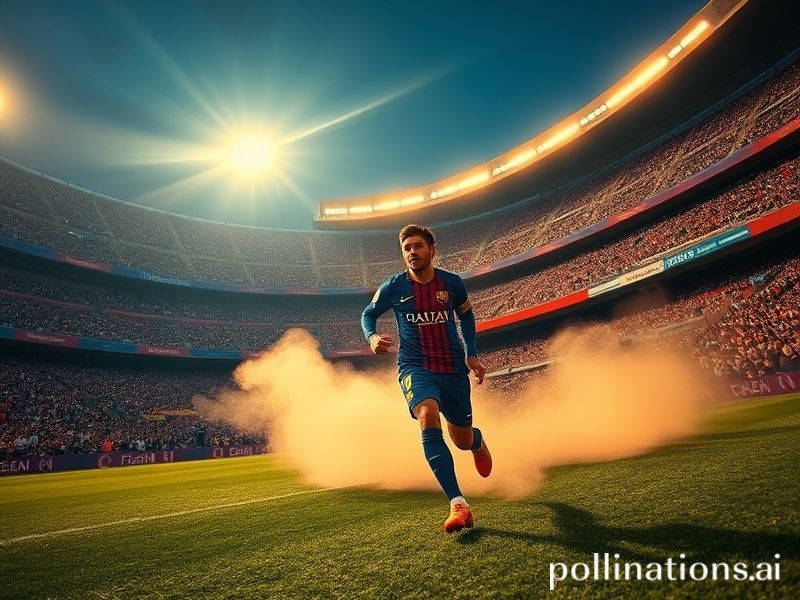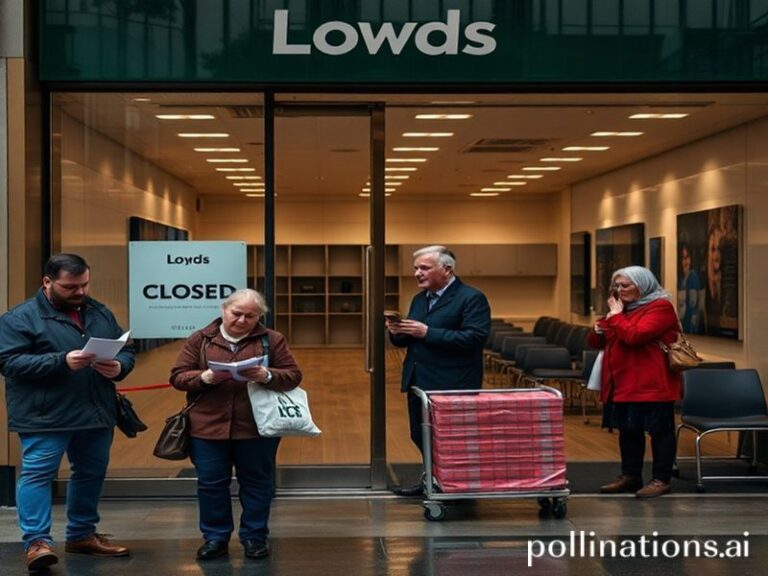Athletic Club vs Barcelona: The Last Romantic vs The Algorithm – A Global Derby of Identity and Cash
Athletic Club – Barcelona: The Last Romantic Standing in a World That Swiped Right on Moneyball
There are, roughly speaking, two kinds of football clubs left on the planet: those that treat the beautiful game as a balance sheet appendage, and Athletic Club, the stubborn Basque outpost that still insists football is a birthright rather than a leveraged buy-out. When these two species met at San Mamés last weekend, the scoreboard dutifully registered a 2-2 draw, but the global ledger told a more interesting story—one about identity, nostalgia, and the faintly comic persistence of romance in an age when even romance is monetised and data-mined.
To the uninitiated, Athletic Club versus FC Barcelona sounds like a regional derby with good tapas. Zoom out, though, and you’re watching a proxy war between competing visions of the 21st-century nation-state. Barcelona—owned by its socios on paper, bankrolled by Qatar, Spotify, and anyone else with a logo that fits on a sleeve—flies the flag of turbo-capitalism in culé colours. Athletic Club, meanwhile, operates a de-facto immigration policy stricter than Switzerland on a Sunday: only players born in, or forged by, the Basque Country may don the red-and-white stripes. In an era when passports are traded like Panini stickers, Athletic’s rule is either admirably principled or charmingly suicidal, depending on your taste for economic self-harm.
The match itself—played under drifting Basque rain that felt personally offended—delivered the usual theatre. Barcelona’s teenage midfield trio, assembled at a cumulative cost greater than the GDP of several Pacific micro-nations, pinged passes with the effortless cruelty of trust-fund kids choosing holiday homes. Athletic responded with the organised fury of people whose grandparents remember Franco, equalising twice through a winger who, until last year, was delivering packages for an Amazon subcontractor. The symbolism wrote itself; Hollywood would reject the script for being too on-the-nose.
Globally, the implications are deliciously ironic. While the English Premier League sells itself as the world’s living room—where a Saudi sovereign fund can cosplay as a Geordie folk hero—Athletic Club offers the opposite: a gated community you can only enter via placenta. Yet television rights and digital streams have turned this local quirk into an international brand. From Seoul to Seattle, fans who’ve never eaten bacalao suddenly fetishise Athletic as “authentic,” the footballing equivalent of artisanal sourdough. The club’s Twitter account, naturally bilingual in Basque and despair, now fields questions in Japanese about whether a half-Basque, half-Martian qualifies under the policy. Progress, comrades, wears many faces—some of them emoji.
There’s a darker punchline, of course. Barcelona’s balance sheet is a crime scene covered in Spotify-green silk, yet the team keeps winning because, well, money talks even when auditors scream. Athletic’s balance sheet is pristine, but every year the sporting project teeters on the edge of relegation, kept alive by academy graduates whose knees are already 35 on the odometer. In the great casino of global sport, virtue is not so much rewarded as pitied, like a vegan at a Texas barbecue.
Still, the fixture matters beyond points or morals. It is a living museum piece, a reminder that football was once a civic religion before it became a streaming subscription. For ninety minutes, supporters in Bilbao chant in a language that dictatorships tried to erase, while Barcelona fans wave Senyeras next to Korean placards advertising fried chicken. None of it should work, yet it does—messily, angrily, beautifully.
Final whistle. Players hug, cameras zoom, algorithms queue the next dopamine hit. In boardrooms from Doha to Delaware, analysts tally eyeballs and update spreadsheets. Somewhere in the Basque hills, an old man closes the radio and smiles: his club still exists, defiantly unoptimised. For now, that counts as a victory—until, of course, some venture-capital firm figures out how to monetise authenticity and package it as an NFT.
But that’s next season’s dystopia. Tonight there is only the rain, the anthem, and the stubborn, almost heroic refusal to sell your soul—even when the market is offering a very fair price.







